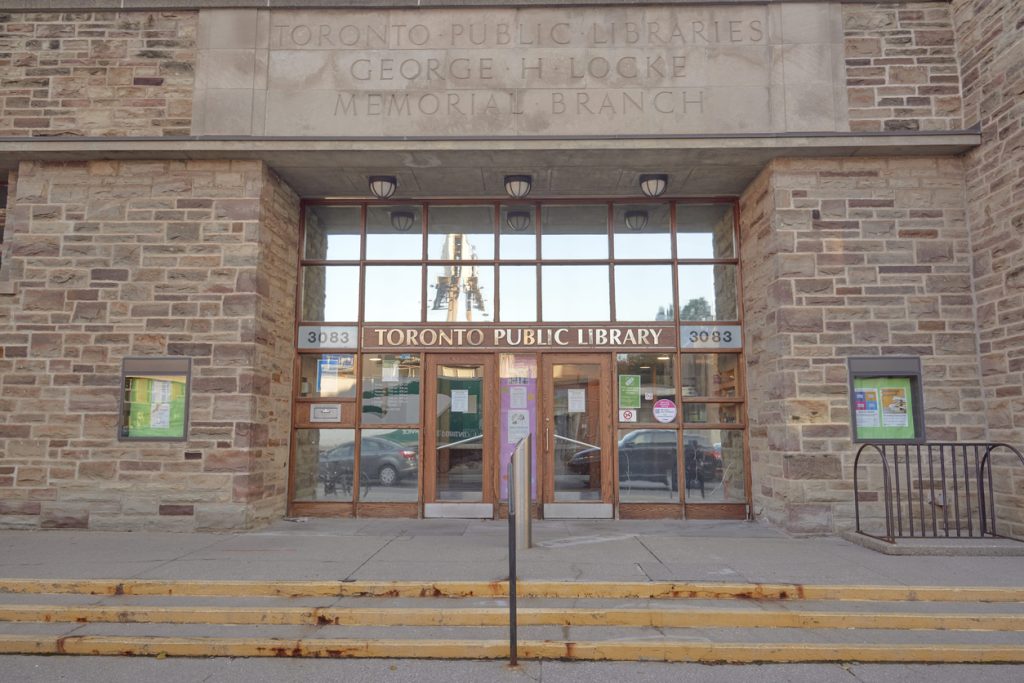|
Getting your Trinity Audio player ready...
|
While many people perceive public libraries to be simply a space to check out books, they are also valuable spaces to engage in job search and career support. Public libraries offer a range of employment services as well as flexible hours; computer and internet access; workshops; and helpful, friendly staff assistance.
Over the past few years, libraries have been exploring their growing role in employment services and workforce development opportunities. The Toronto Public Library’s 2020-2024 strategic plan prioritizes workforce development initiatives that empower Torontonians to succeed in the changing economy.
The Career Coaches in Residence (CCIR) program, offered by Toronto Public Library (TPL), provides free job and career support and employment guidance to help individuals on their career journey. Career coaches provide support through one-on-one career counselling and create individualized career plans based on participants’ needs and interests. Coaches can help with general career advice, job searching, resume and cover letter writing, and personal marketing tools such as LinkedIn. They also connect participants with library and community resources and services.
Coaches have different areas of focus, such as career wellness and industry expertise, reflective of the community. The CCIR program features workshops to complement the one-on-one sessions. Workshops are facilitated by the career coaches and by guest speakers from the career coaches’ professional networks. Topics are based on the coaches’ expertise, including soft skills, mental resilience, interview skills, networking and exploring different industries. Guest speakers bring diverse and unique expertise that helps guide participants on their career journey. Coaches also offer suggestions and feedback for employment-related services to library staff, informed by the trends discovered in their sessions.

The Career Coaches in Residence program launched in fall 2020. Originally, the program was to be held in-person at branches across Toronto but due to pandemic restrictions, the program moved online. CCIR continues to be offered remotely; participants prefer the remote model.
The program is targeted at younger adults, ages 18-29, and is one of the first programs at TPL for this age demographic. TPL chose to focus on this age group for a number of reasons. Younger adults face unique barriers to employment and often face higher unemployment rates than adults. Younger adults are frequently employed in part-time and precarious work – a challenge that has increased due to the pandemic. Youth also face challenges related to lack of experience, fewer professional connections, and exploring different professional and personal paths.
The program has provided insight into how libraries can help jobseekers and play an important role in the workforce development landscape. The public library is uniquely positioned to provide job and career support, being a trusted, welcoming and accessible community hub that connects individuals to their informational needs. This equitable space provides support to those who may experience barriers when accessing other employment services. Many community agencies and supports, due to funding regulations, have strict eligibility requirements. The CCIR program is able to help communities that might not be able to access these supports.
The library is also a valuable place to connect with other community partners and agencies to provide career navigational support. During the planning process of the CCIR program, the library held consultations with younger adults and community agencies to get a better understanding of how the library fits within the employment support services network. These consultations revealed that the library was not really considered a resource for job and career help.
One of the goals of the program was to strengthen connections with community partners to better establish the library as a place for career support and refer participants to relevant services and opportunities in the community. It can be a challenge to establish and maintain relationships with community partners. There is often a lack of awareness that the library offers career support and can benefit their clients.
“There is often a lack of awareness that the library offers career support and can benefit their clients.”
The program has helped create more awareness of the library as a source for employment help. The library can set aside coaching appointments for community partners’ clients. Coaching appointments can complement a workshop, class or placement offered by an agency. The program runs for two 20-week sessions; one in spring/summer and fall/winter. Consistency helps build awareness of the library as an option for career support.
The library has also partnered with agencies to facilitate programs and referrals. TPL partnered with NPower Canada, a non-profit organization that helps adults engage in tech careers through technical, professional and life skills training and industry certifications. Career coaches refer participants to NPower Canada. The library also provides NPower Canada information sessions to library users.
There has been steady demand for the program. Since the launch in fall 2020, TPL has held 1,000 one-on-one consultations and hosted over 2,000 workshop attendees. Participants really value the customized, one-on-one support provided through the consultations. The most popular topics are career exploration and career clarity and job search strategies. Many newcomers join the program, seeking guidance on building Canadian experience and learning about Canadian work culture. The program is also popular among recent graduates looking to start their career journey and younger adults contemplating switching jobs or careers.
Several participants have reached out months after working with a career coach to offer an update about their career journey. One participant reached out to thank a coach for their “insight, motivation and assurance” to keep going and shared that they had secured a position in their field of work. They explained they were a newcomer and were appreciative of the library’s services.
The popularity of the program, despite other existing employment resources, indicates the need to continue strengthening the role of the library in the employment support space. The public library can have a vital role in supporting career navigation by offering a variety of career and job search resources, welcoming spaces and meaningful community connections.
Don’t forget your local public library when thinking about career and employment help for your community members. Libraries are always looking for new partnerships and opportunities to promote their services in the community. This is especially true when it comes to career and job search support services.
The Career Coaches in Residence program is generously supported by lead donors Azrieli Foundation and RBC Future Launch and supporting donors Linda Dagg and Kenneth Wiener and Ted Rogers Community Grants.




